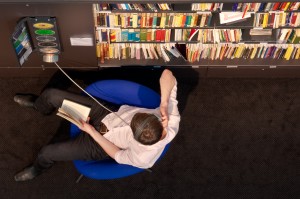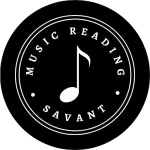
How long have you been learning music? Have you taken a lot of lessons, classes, or read a lot of books? If so, does this mean that your past experience will automatically make you an expert in music?
The answer is no.
Experience Means Nothing
We can all think of someone who has been taking lessons for years. Maybe this person is you. Why are you not an expert by now in reading and playing music? What is it that keeps you wanting to take lessons?
I also know several people who have been playing for years, but don’t seem to get any better over time. You would think all that experience would make them an expert by now.
Isn’t it funny how we can work at something most of our lives and never get particularly good at it? We get along perfectly well in life, but we never really get exceptional at it.
It turns out that working hard at something over a period of years does not mean you will become a great performer or expert in anything.
Sometimes We Get Worse Over Time
Yes, it’s true. There are many people who will actually get worse with experience instead of better.
How many years you spend trying to learn how to read and play music does not determine how outstandingly good you will become at it. In fact, it’s very possible that you could get worse if you are not careful.
No matter how many years you spend doing something, you may not get any better at it than when you first started.
That explains why there are many teachers who have taught for a number of years, but seem to be worse at teaching than others with less experience. Have you encountered anyone like that?
If experience isn’t the answer to getting better at reading and playing music, what is?
Focused Practice
The difference between expert performers and the average person is that the expert has had a life-long period of deliberate, focused practice in order to improve in reading and playing music.
This “focused practice” is designed to work on the specific needs of the musician. It also means that very little time is spent practicing, like how most people believe it to be, and even less time in actual performance.
Most of this intense training is done outside of the lesson time and done on your own. It’s certainly not fun and your age, economic status, or ability doesn’t have anything to do with it either.
More Focused Practice = Better Results
The more focused practice you have in music, the better you get at it. Keep in mind that I said “focused practice” and not just any kind of practice. This is a very different concept than what most people think of practice to be.
The reason why we don’t practice this way all the time is because it’s difficult and not a lot of fun.
According to two famous researchers, Herbert Simon and William Chase, no one becomes an expert at anything without at least ten years of very hard preparation.
What’s even more interesting is that as they kept doing research in this area, they found that many authors and scientists produced their greatest work only after twenty or more years of devoted practice.
This means that by year nineteen, they are still getting better with experience.
6 Ways You Can Practice Better
There are many specific ways we can start developing better practice habits by spending 80% of our time on “focused practice”.
Here are just a few ideas to help get you started:
#1 – Spend more time practicing alone. Having other people around will distract you.
#2 – Try to practice in the late morning or early afternoon when your mind is still fresh.
#3 – Get plenty of sleep at night, and if you need to, take afternoon naps. Intense practice sessions demand a lot of recovery time.
#4 – Gradually increase your focused practice time. The more you do, the better you get.
#5 – Design your practice to work on specific needs. Don’t waste your time on things you already know and can do well.
#6 – Spend more time practicing without playing. Developing better music reading skills does not require you to play a single note. Sometimes the best practice is not making any sound at all.
Think about your practice routine and decide what changes you would benefit from. In the end, what you get done during your practice time is more important than how much time you’ve spent doing it.
Don’t waste your own valuable time playing just to be playing (that’s what most people think practice is) and learn how to practice more effectively.
